Jews in Azerbaijan as example of multiculturalism, interreligious coexistence and tolerance
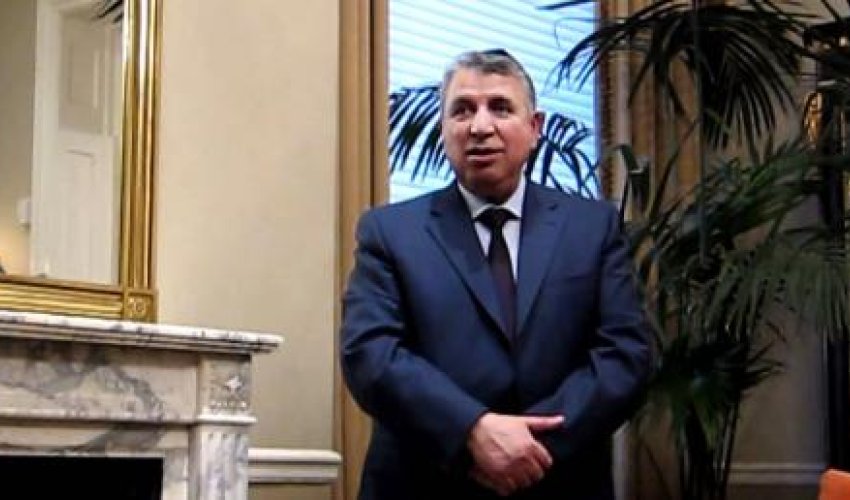
by Yossi Lempkowicz
On 27 January, which marks the annual International Holocaust Remembrance Day, leaders of the Jewish, Muslim and Christian faiths got together in Baku, capital of Azerbaijan. Candles were lit in memory of the six million Jews exterminated by the Nazis during WWII, in presence of foreign ambassadors and the UN representation.
This should be an example for the world of a country located at the crossroads ofEurope and Asia that cultivates interreligious coexistence and multual homegrown tolerance since many years, where various ethnic groups live side by side in one nation. Multiculturalism is part of Azerbaijan’s traditions and customs, it constitutes one of its main assets. In order to promote these values to the whole world, the country set up in 2014 an international centre for multiculturalism.
A secular Muslim country of southern Caucasus, bounded by the Caspian Sea to the east, Russia to the north, Georgia to the northwest, Armenia to the west and Iran to the south, where the population is composed of 96%Shia Muslims and where Jews are an important part of the society.The respect for the culture and traditions of other nations is cultivated by the society as a lifestyle. ‘’I took part in a conference on tolerance in Paris one year and a half agotogether with representatives of Jewish communities. One French lady addressed the delegatesand said : ‘’We are Jewish at home but French in the street because Jews are afraid to show that they are Jews and to wear a kippah,’’ says Mubariz Qurbanli, Chairman of the State Committee on Religious Associations of Azerbaijan, a body overseeing the relations between state and religion. ‘’I wear my kippah at home and in the street.
Without any fear because there is no anti-Semitism in this country,’’ says Yevdayev Milikh Ilhanonovich, Chairman of the Religious Community of Mountain Jews of Azerbaijan, one of the three main Jewish communitiesalongside the European (Ashkenazi, staffed by Chabad) Jews and Georgian Jews, in his synagogue in the Nasimi district of Baku, one of the 2 synagogues in this city of 2 million inhabitants which features a mixture of top modernity and tradition.
I could personally experienced that wearing a kippah in the city is appreciated by the people, some of them greeting me with ‘’Shalom.’’ 30,000 Jews live in Azerbaijan, including 8,000 in Quba, a city in the north eastof the country, which has the particularity of being the sole city outside Israel inhabited only by Jews. A community with a history dating back 2,500 years. Also dubbed ‘’Red Village’’ in Russian (the country was a Soviet Republic before its independence in 1991), it has 3 synagogues and a Hebrew school. 10,000 Jews live in the capital where there are 2 synagogues, 2 Jewish schools, one college and 3 kindergartens.
‘’In my synagogue every Shabbat around 60 people attend the service, 300 on the holidays. We have no security guard and our door is open 24/24’’, Ilhanonovich, who is originally from Quba, told EJP in his office in the synagogue where flags of Azerbaijan and Israel are placed on his desk as a symbol of the close links between the two countries. Jews, Christians and Muslims celebrate each other’s holidays and cultural experiences. In the hallway of the synagogue are photos of Ilhanonovich and other synagogue leaders alongside the country’s President Ilham Aliyev as well as the country’s leading Imam and the head of the Catholic Church. Mountain Jews trace their origin in ancient Persia. They speak Juhuri, a mix of Farsi and Hebrew. Historians believe the Mountain Jews first settled in the Caucasus in the 5th century. There are 7 synagogues throughout Azerbaijan.
A new synagogue-museum is currently being built in Quba with, like the other existing ones, financial support from the state. Being the second largest religious group, the Jewish comunity receives most of the $500,000 allocated annually by the state to religious communities, explains Mubariz Gurbanli. This example of a vibrant Jewish community illustrates how over the years Azerbaijan has become a champion of cultural and religious diversity. It is no coincidence that 2016 has been named Year of Multiculturalism and that the country has been chosen to host in April the Global Forum of UN Alliance of Civilizations, which was established to eliminate the tension between the West and the Islamic world.
‘’This will be an excellent opportunity to learn how to prevent radicalisation on the global level,’’ notes Gulshan Pashayeva, Deputy Director of think tank Center for Strategic Studies. ‘’The government invested a lot in order to fight radicalism, intolerance and hatred with a mix of law enforcement and education,’’ she adds. ‘’Our multiculturalism and multinationalism should be developed as an example for the rest of the world,’’says Dr Azay Guliyev, Chairman of the Council of State Support to NGO’s. Created under the auspices of the Azerbaijnai President, this bodygives financial support to various groups, including human rights organisations, in order to increase awareness of the country’s reality.
‘’At a time when Europe copes with the migrant crisis and that Islamophobia and anti-Semitism are the main threats, we have to show the dozens of examples of coexistence in Azerbaijan,’’ says Guliyev, who is also a member of the parliament, as he deplores that his country is regularly the target of negative campaigns abroad which pinpoint some minor issues while forgetting his essential human assets. He recalls that the country has 55 political parties playing an active role in the country and some criticizing the government…’’. ‘’We have nothing to hide, especially in an era of internet andsocial media.’’
‘’We have no problem with criticism but it should not be impartial or motivated by political reasons,’’ he adds, recalling that Azerbaijan as a young country with many challenges including safeguarding its security in an unstable and sensitive region,’’a reference to the conflict with its neighbour Armenia over Nagorno Karabakh, a territory occupied by Armenia since 1992 along with 7 other adjacent regions, taking up 20 % of the Azerbaijani territory. Since then one million of Azerbaijanishave been forced to flee their homes ‘’While Armenia implemented ethnic cleansing in this occupied territory,30,000 Armenians live peacefully in our country and the Armenian Catholic Church is well rooted,’’ he notes. ‘’Our example of interreligious harmony and positive multiculturalism needs to be studied in schools, universities, international organisations and the global media,’’ concludes Guliyev.
(European Jewish Press)
www.ann.az
Similar news
Similar news
























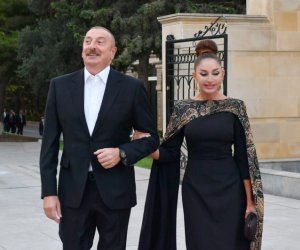
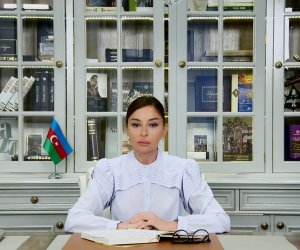
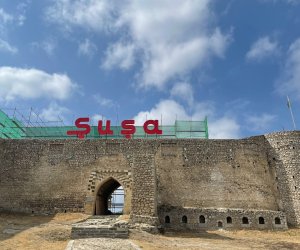


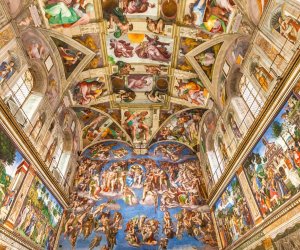
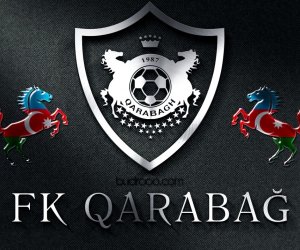
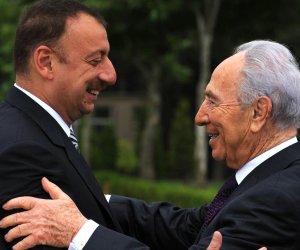
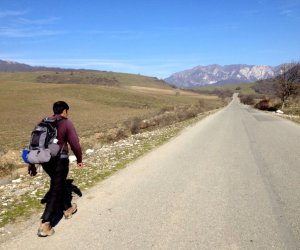



 Photo
Photo 


 Video
Video 

